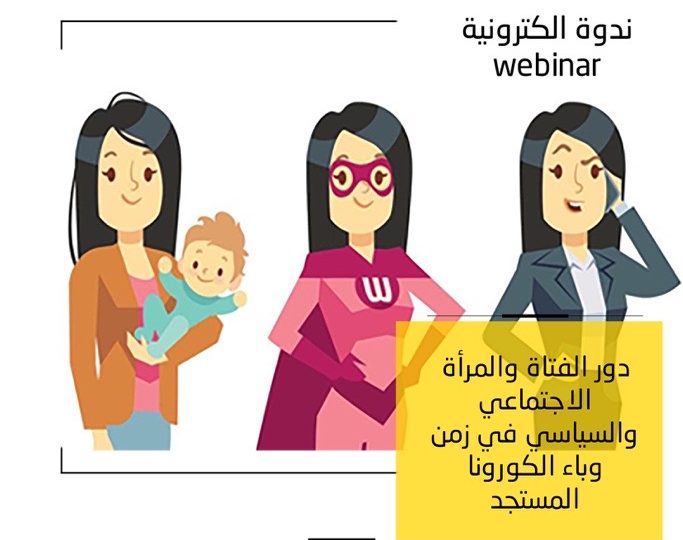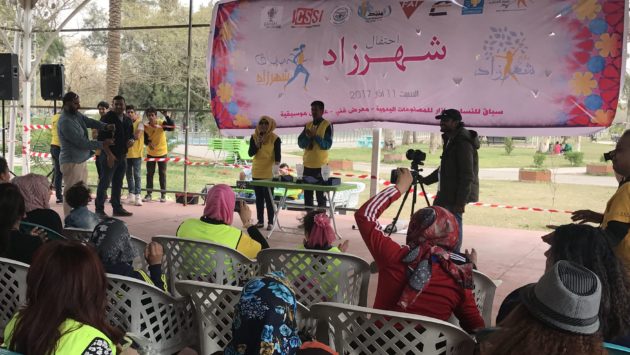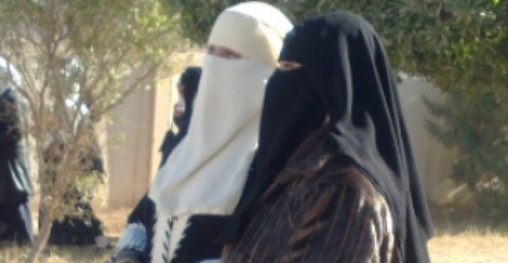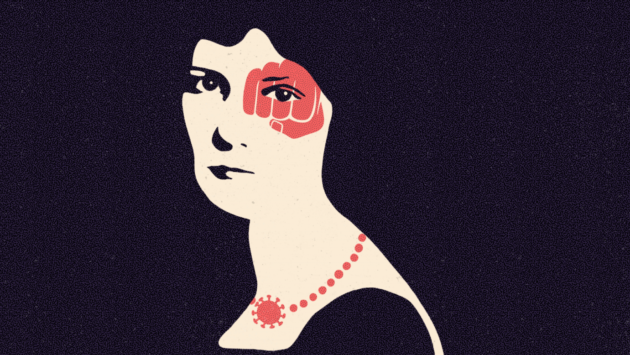Social and Political Role of Girls and Woman in the Time of the Coronavirus Pandemic.
The She Revolution group held its first webinar on 6 April, entitled “The Social and Political Role of Girls and Woman in the Time of the Coronavirus Pandemic.” It was oriented around two main axes of discussion:
• The current condition of girls and women and the need for political and social rights.
• The means of establishing social solidarity and cooperation between various groups within society and the role of women and girls in developing this network.
“She Revolution” is a feminist platform that is active in the public sphere, it is independent and open to all initiatives that share its vision and goals. The platform works to create initiatives and activities that encourage girls and women to be part of effective civic work and political participation, and to carry out campaigns for the benefit of all Iraqis.
The webinar included 4 speakers: activist Abrar Al-Ani, activist Lodiya Raymond, lawyer and activist Iman Abdel Rahman, and activist Enas Jabbar.
The session began by focusing on the representation of women and girls in the October revolution, which broke down many of the common barriers in society that restrict women. Their work was not limited to cleaning and first aid, they also had leadership roles. Girls and women in Baghdad and other provinces coordinated and led some of the demonstrations, they provided logistical support and medical care. A number of activists and participants in the revolution were subjected to threats, had their honor called into question, and endured slander in several governorates, most notably in Basra which tends to be far more conservative and traditional.
The participation of women in these recent social movements has contributed to the formation of an internal awareness that is the result of a long struggle for women within civil society organizations. The enormous value of women and the critical role they have played in impacting Iraqi society in the October revolution is the result of a continuous effort within civil society over the past years.
Then the session moved on to explore the role of women and the difficulties they have endured due to the spread of the Coronavirus in Iraq and the imposition of a comprehensive curfew on all regions in the country. One of the most prominent issues that women must contend with, especially in remote and rural areas, is the lack of understanding within the population about the threat of the virus and the realities of how it spreads. There is an urgent need to raise awareness in order to fight the virus. Some people have refrained from getting medical treatment for their daughters who were exposed because cultural norms stipulate that a woman should stay at home, and thus the infection becomes a source of shame.
Another issue for women during the quarantine is their increased exposure to domestic violence and the difficulty of being required to be with their abusers, and only them, for such an extended period of time. There is an imperative now to take definitive action on their behalf, especially after the adoption of the slogan “No to Violence” by the United Nations.
Participants in the webinar discussed the increased pressure on women to provide for their families in a new way during the quarantine: women are frequently sent out to different charities and voluntary groups to get food while men stay home so as to preserve their sense of pride. The fear women have about exposing their children and the need to stave off hunger for their families compels them to put their own lives at risk.
Social media has become a very effective tool of communication as it allows for managing and organizing large segments of different communities quickly and effectively. Women are on the frontlines in terms of seeking help and providing it to those who are in need. They have also been effective in organizing and exchanging information.
It was also noted that obstacles facing female students have increased given the move to e-learning. Pressure from parents in more traditional and conservative parts of the country limit the kind of communication women and girls can engage in, as use of smart phones or social media violates accepted social norms.
Several important conclusion emerged from the webinar, the most prominent of which were:
1. Guaranteeing that laws protecting women’s rights are enforced by authorities, and ensuring that women are involved in decision-making in the country,
2. Preserving the expanded role of women that has emerged in recent months, and not confining it to this period of conflict or disaster, but rather extending it to the future, when society starts the process of peacebuilding and networking,
3. Maintaining the active presence of women in the demonstrations as it was before the Coronavirus,
4. Working to launch a campaign that allocates emergency numbers to help women victims of domestic violence; launching a social media page to raise awareness about new campaigns which attempt to increase women’s confidence and to reduce their fears about negative societal repercussions of their actions; and establishing clear channels of communication so that women can easily reach relevant authorities when they are in need of help.




